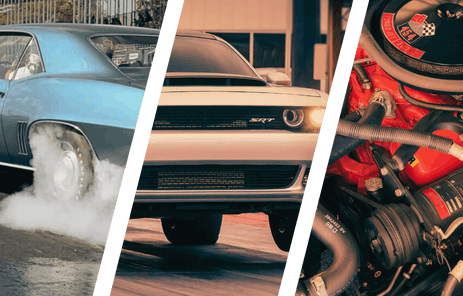Leno’s Law is moving towards passage in the state of California, but it is a severely gutted piece of legislation. The original bill was very different, as this link shows.

The amended bill will provide a gradual expansion of the biennial smog check exemption, which includes adding an additional 10 model years (to 1985) over the next five years. However, to qualify for full exemption, a vehicle must have a historical license plate and hold collector vehicle insurance.
The original idea behind the bill, which is backed by Jay Leno, was simple: any car 35 years or older would no longer need to pass California’s biennial smog test. Many saw this as a practical change since most classic cars are driven far less than modern vehicles.
But a state senate committee recently added two big strings to that deal. Now, to get the exemption, a car must have official California historical license plates and be covered by a collector car insurance policy.

The big problem for enthusiasts is the historical plate rule. According to California law, cars with those plates are meant to be used almost exclusively for car shows and club parades, not for just going on a simple weekend drive. This is a bitter pill for a lot of reasons. First, it would prohibit people from daily-driving or pleasure driving their collector vehicles.
Second, it does away with the rolling exemption, which would add a year to the exemption annually. Unlike cars of the ’50s and ’60s, vehicles are the ’80s and newer are inherently cleaner than their predecessors. It is not unusual to see ’57 Chevys, air-cooled VW Beetles and buses, etc. being used as daily drivers in California. Would a fuel-injected car from 1990 pollute significantly less than these? Of course.
This doesn’t matter to some California legislators, who remain unmoved and are opposed to the idea altogether.
“Clean air is a necessity. Collecting cars is a hobby. I do not support rolling back progress on a public health issue we have spent decades trying to improve,” stated State Senator Aisha Wahab, who does not support easing the rules.

Proponents argue that keeping a well-maintained classic car on the road avoids the large environmental footprint of building a brand-new vehicle. The hardship (and expense) of getting a car smogged in California would have been eased for many under the original bill.
For more on Leno’s Law, click here.
You might also like
Dart GTS 383: A Rare Cruiser For a Hardcore Drag Racer
Horsepower was up to 330, but fewer than 1,300 Dart hardtops and only 63 convertibles were sold in ‘69. The 340 was a more popular choice.


